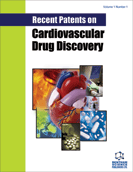Abstract
The beneficial effects of statins in hypertension stem from their effects on endothelial function, their interactions with the renin-angiotensin system, and their influence on large artery compliance. Substantial evidence has recently accumulated showing that statins exert pleiotropic effects in vascular function. These include an increase in the synthesis of NO, inhibition of vascular smooth muscle cell proliferation and migration, anti-inflammatory actions, downregulation of angiotensin II type 1 receptor expression, and anti-oxidative effects. These effects occur before reduction of cholesterolemia. Available data support only a modest BP-lowering effect of statins which is most prominent in those patients with poorly controlled hypertension. Even though they only cause a minor reduction in BP, they may play a role in the prevention of cardiovascular disease. Statins may be useful therapeutic agents in hypertensives with high serum total cholesterol, in patients with poorly controlled hypertension even without hypercholesterolemia, in normocholesterolemic well-controlled hypertensive subjects with high C reactive protein levels, and in those subjects who need secondary prevention. Future research is needed to further characterize the impact of statins alone or in combination with antihypertensive agents to prevent or delay the development of stage 1 hypertension. This review article also includes relevant patents.
Keywords: Statins, hypertension treatment
 4
4

